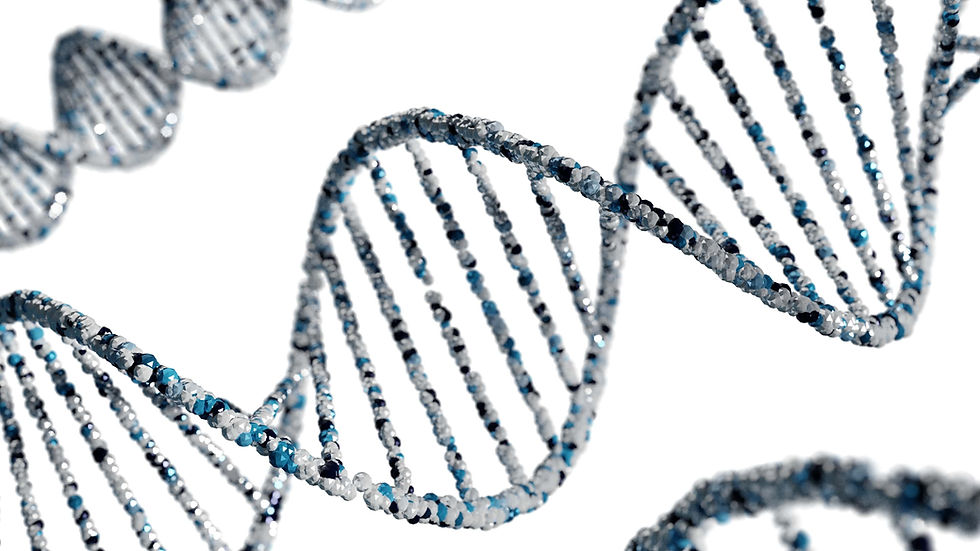Have you considered structural infertility?
- Alexandra O'Connor
- Dec 26, 2023
- 3 min read

Sometimes we need to know a bit more about what is going on inside. Physical, structural causes of infertility are more common than you would think, and in many of my more complex cases there is some degree of physical infertility in play. I advise working with an independent expert ultrasonographer or expert gynaecologist rather than relying on an IVF clinic's inhouse team when investigating structural issues.
So what kind of things are we talking about:
- Are there fibroids present?
There are different kinds of fibroids, inside the uterus, within the muscle of the uterus or on the outside of the uterus. The size and placement of fibroids can have a impact on fertility, some fibroids are best left in situ, others are best removed. The decision has to balance the impact of the fibroids with the potential for the introduction of scar tissue from the removal. You should seek the opinion of a gynaecologist with a special interest in fibroids to see what is the best option in your case.
- Is there a polyp?
A polyp is like a mini fibroid on a stalk and can act a bit like a coil in the uterus, preventing successful implantation. Polyps are usually easy to remove.
It is worth noting that fibroids and polyps are more common when there is microbiome dysbiosis and inflammation present, and more common when oestrogen metabolism is out of balance. If you have issues with fibroids or polyps, it is sensible to consider investigating the microbiome and looking more closely at hormone regulation.
- Is there any scarring on the uterus that could impact implantation?
Scarring can be caused by surgery or other medical interventions, but it can also be caused by a past infection. If there is no known explanation for the scarring, I would recommend a vaginal microbiome test to check for any hidden microbiome issues.
- Are the tubes clear?
It baffles me when I come across people doing IVF who haven't had their tubes checked. Tubal blockage is a relatively common cause of infertility, but there is some evidence that going through IVF with blocked tubes can lower the chance of a healthy implantation if the tubes are a source of infection or inflammation.
Blocked tubes are more common when there is a microbiome issue, either past of present - so if there is an issue with blocked tubes, it is sensible to check the microbiome.
The gold standard for investigating fallopian tubes would be a 3D Saline Scan and HyCosy. This means someone has a really good look at the uterus, at the shape of the uterus, the state of the lining, the tubes and the surrounding structures. This is a more thorough scan than a regular ultrasound or an HSG xray as the uterus is filled with saline solution which makes it easy to spot uterine anomalies and structural issues.
Sometimes tubes are not blocked, but are in spasm. Visceral osteopathy may be able to help in that case. A HyCosy or HSG can be mildly uncomfortable - but if it is extremely uncomfortable, I recommend a session or two with my visceral osteopath colleague as there shouldn't be that much tension through the cervix!
- Are the antral follicles evenly spread over both ovaries?
If one has a considerably lower antral follicle count, this is another presentation I refer to my visceral osteopath colleague - both ovaries are being exposed to the same level of pituitary hormones so this scenario suggests there may be internal tensions or circulation issues impacting that ovary which would also have an impact on egg quality and AMH levels. If these tensions and restrictions can be addressed, the ovaries may be able to respond better to the menstrual hormones.
- Are there internal adhesions? These could be caused by previous infection, surgery, trauma or endometriosis - again, I refer these issues to my visceral osteopath.
- Has there been a history of physical trauma, infection or surgery (including childbirth trauma or surgery)?
In these cases I always want to get things checked over by my visceral osteopath.
Not everyone is lucky enough to have a visceral osteopath in the next room, but if you know what you are looking for, you may be able to find someone local to you who has expertise in this area.
I'm a @FertilitySupport Trained acupuncturist - we dig a little deeper. Has anyone properly investigated you from a physical perspective?

.png)




Comments